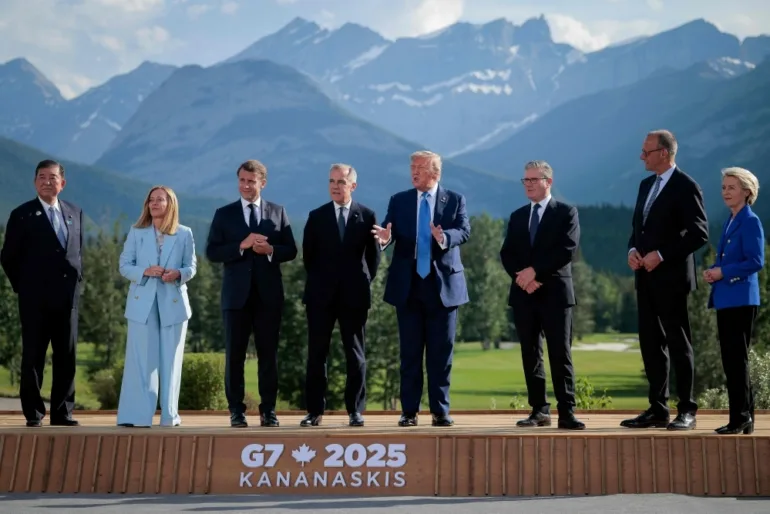The Group of Seven (G7) nations announced Saturday that they have agreed to exempt U.S. multinational corporations from a global minimum tax imposed by other countries, a significant victory for the administration of President Donald Trump, which had lobbied strongly for the compromise.
Under the agreement, American firms will benefit from a “side-by-side” arrangement that allows them to be taxed exclusively in the United States — on both domestic and foreign profits — rather than being subjected to minimum taxes by foreign jurisdictions. The deal was outlined in a statement released by Canada, which currently holds the G7’s rotating presidency.
The compromise, according to the statement, was made possible in part by “recently proposed changes to the U.S. international tax system” included in President Trump’s major domestic policy legislation, which is still under debate in Congress.
The G7 described the side-by-side mechanism as a pathway to “greater stability and certainty in the international tax system moving forward.”
The move comes amid ongoing efforts to implement a 2021 international tax deal reached by nearly 140 countries under the guidance of the Organisation for Economic Co-operation and Development (OECD). The agreement introduced two key pillars — the second of which mandates a global minimum corporate tax rate of 15 percent.
The Trump administration has been a vocal critic of the deal, arguing that it unfairly targets American companies. Whether the OECD ultimately agrees to exempt U.S. firms from the global minimum tax remains uncertain.
In its statement, the G7 expressed optimism, saying it looks forward to “expeditiously reaching a solution that is acceptable and implementable to all.”
U.S. Treasury Secretary Scott Bessent had earlier hinted at progress toward a breakthrough, stating Thursday that a “joint understanding among G7 countries that defends American interests” was close.
Bessent also urged U.S. lawmakers to strip out Section 899 from Trump’s sweeping policy proposal, known informally as the “One, Big, Beautiful Bill.”
Section 899, described by critics as a “revenge tax,” would authorize the U.S. government to impose punitive levies on foreign-owned firms and investors from countries perceived to be enacting unfair tax measures against American businesses. The controversial provision has raised concerns about its potential to deter foreign investment in the United States.
AFP


